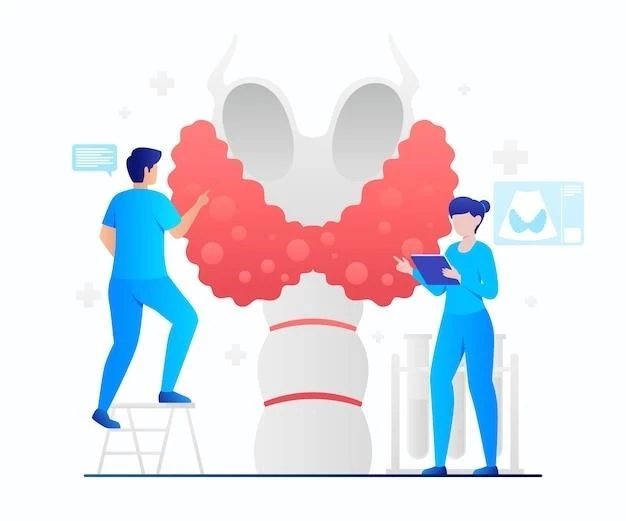Disease ౼ Deafness, Nephritis, Ano Rectal Malformation
An overview of a rare disease encompassing hearing loss (deafness), kidney inflammation (nephritis), and rectal abnormality (ano rectal malformation) will be delved into. The article will cover various aspects such as diagnosis, treatment approaches, patient management, quality of life, and research perspectives.
I. Introduction to the Rare Disease
Deafness, nephritis, and ano rectal malformation are three distinct but interconnected conditions that, when present together, form a rare disease. This complex syndrome poses significant challenges to both patients and healthcare providers due to the diverse range of symptoms and potential complications it entails. Understanding the underlying causes, diagnostic pathways, treatment modalities, and overall impact on patients’ quality of life is crucial in effectively managing this rare disease.
The rarity of this condition emphasizes the need for heightened awareness among medical professionals to ensure timely diagnosis and appropriate interventions. The intricate interplay between the auditory system, renal function, and gastrointestinal anatomy necessitates a multidisciplinary approach involving specialists from various medical fields. By shedding light on the unique characteristics and complexities of this rare disease, this article aims to enhance understanding and improve the care provided to individuals affected by deafness, nephritis, and ano rectal malformation.
II. Understanding Hearing Loss (Deafness)
Hearing loss, a common component of the rare disease involving deafness, nephritis, and ano rectal malformation, can manifest in various degrees and forms. It can be congenital or acquired and may affect one or both ears. The causes of hearing loss are diverse, including genetic factors, infections, ototoxic medications, noise exposure, and aging.
Individuals with deafness face challenges in communication, social interactions, and educational or occupational settings. Various diagnostic tests, such as audiometry and imaging studies, are utilized to assess the extent and nature of hearing loss. Treatment options range from hearing aids and cochlear implants to assistive devices and auditory training programs.
Understanding the physiological mechanisms of hearing, the impact of hearing loss on overall well-being, and the available interventions is essential for healthcare professionals involved in the management of patients with this rare disease. By comprehensively exploring the complexities of hearing loss within the context of the broader syndrome, we can better address the specific needs and optimize the quality of life for individuals affected by deafness in conjunction with nephritis and ano rectal malformation.
III. Exploring Kidney Inflammation (Nephritis)
Nephritis, a key component of the rare disease complex featuring deafness, nephritis, and ano rectal malformation, refers to the inflammation of the kidneys. This condition can arise from various etiologies, including infections, autoimmune disorders, drug toxicities, and genetic predispositions.
Patients with nephritis may experience symptoms such as hematuria, proteinuria, edema, hypertension, and impaired kidney function. Timely diagnosis through laboratory tests, imaging studies, and renal biopsies is crucial to assess the extent of kidney inflammation and plan appropriate management strategies.
Treatment of nephritis often involves a multidisciplinary approach, including medications to control inflammation, blood pressure, and immune responses. Severe cases may require dialysis or kidney transplant. Long-term monitoring and lifestyle modifications are essential to preserve renal function and prevent complications.
Exploring the pathophysiology, clinical manifestations, diagnostic approaches, and treatment options for nephritis within the context of this rare disease framework is essential to provide comprehensive care to individuals affected by kidney inflammation in conjunction with deafness and ano rectal malformation.

IV. Unpacking Renal Malformation
Renal malformation, a significant aspect of the rare disease constellation encompassing deafness, nephritis, and ano rectal malformation, involves structural abnormalities in the kidneys. These malformations can range from congenital anomalies in kidney shape or position to more complex issues affecting renal function.
Individuals with renal malformations may be at increased risk of developing complications such as recurrent urinary tract infections, kidney stones, and impaired kidney growth. Diagnostic evaluation through imaging studies, genetic testing, and renal function tests is critical to assess the nature and extent of the malformation.
The management of renal malformations varies depending on the specific abnormalities present. Treatment approaches may include medications to control blood pressure, prevent infections, or surgical interventions to correct anatomical defects. Long-term follow-up and monitoring are essential to monitor kidney function and address any emerging issues.
Through a comprehensive exploration of renal malformations within the context of this rare disease syndrome, healthcare professionals can gain insights into the complexities of kidney structural issues in association with deafness and ano rectal malformation. By unpacking the intricacies of renal malformations, we aim to enhance the understanding and management of this component of the rare disease entity.
V. Delving into Rectal Abnormality
Rectal abnormality, a component of the rare disease triad comprising deafness, nephritis, and ano rectal malformation, pertains to structural or functional issues affecting the rectum. These abnormalities can range from congenital defects in rectal development to acquired conditions impacting bowel function.
Individuals with rectal abnormalities may present with symptoms such as constipation, fecal incontinence, rectal prolapse, or other gastrointestinal disturbances. Diagnosis involves thorough physical examinations, imaging studies, and in some cases, genetic testing to identify the underlying cause.
Treatment of rectal abnormalities may include dietary modifications, bowel management programs, medications to regulate bowel movements, or surgical interventions to correct anatomical defects. Long-term management focuses on optimizing bowel function, preventing complications, and improving quality of life.
By delving into the intricacies of rectal abnormalities within the context of this rare disease syndrome, healthcare providers can better understand the challenges faced by individuals with anomalies in the rectal region in association with deafness and nephritis. Through in-depth exploration, we aim to enhance knowledge and care standards for patients grappling with rectal abnormalities in conjunction with other complex conditions.
VI. Diagnosis and Treatment Approaches
Diagnosing and treating the rare disease amalgamating deafness, nephritis, and ano rectal malformation requires a comprehensive approach tailored to address the complexities of each component. Diagnosis entails a thorough evaluation incorporating clinical assessments, imaging studies, laboratory tests, and specialized consultations to identify the extent and impact of each affliction.
Treatment approaches are individualized based on the specific manifestations and needs of the patient. For deafness, interventions like hearing aids, cochlear implants, and auditory rehabilitation programs are implemented to enhance auditory function. Nephritis management focuses on controlling inflammation, preserving renal function, and addressing associated complications through medications, lifestyle modifications, and, in severe cases, dialysis or transplantation.
When it comes to rectal abnormalities, treatment strategies may encompass dietary adjustments, bowel management techniques, pharmacological therapies, or corrective surgeries to optimize bowel function and alleviate symptoms. The multidisciplinary team collaborates to develop a cohesive treatment plan that prioritizes the holistic well-being of the patient and addresses the interplay between the interconnected conditions.
By employing a multidimensional diagnostic framework and tailored treatment regimens that consider the unique challenges posed by this rare disease syndrome, healthcare providers aim to deliver comprehensive care that improves patient outcomes, enhances quality of life, and fosters long-term health management strategies for individuals grappling with deafness, nephritis, and ano rectal malformation.
VII. Patient Management and Quality of Life
Optimal patient management strategies for individuals affected by the rare disease encompassing deafness, nephritis, and ano rectal malformation prioritize enhancing quality of life and addressing the multifaceted needs arising from the interconnected health challenges. Patient-centered care approaches emphasize holistic support, effective symptom management, and empowering patients to actively participate in their treatment journey.
Comprehensive patient management involves coordination among various medical specialists, including audiologists, nephrologists, gastroenterologists, and other healthcare professionals, to ensure a cohesive and integrated care plan. Regular follow-ups, monitoring of symptoms, and adjustments to treatment modalities based on individual responses are integral components of patient care.
Quality of life considerations encompass not only the physical aspects but also the psychosocial and emotional well-being of patients and their families. Support services, counseling, and educational resources play a vital role in helping patients navigate the challenges posed by deafness, nephritis, and rectal abnormalities, fostering resilience and improving overall coping mechanisms.
By focusing on patient needs, promoting shared decision-making, and employing a multidisciplinary care team, healthcare providers strive to enhance patient management strategies, optimize treatment outcomes, and ultimately improve the quality of life for individuals grappling with the complexities of this rare disease entity.
VIII. Research and Future Perspectives
Research initiatives focusing on the rare disease complex involving deafness, nephritis, and ano rectal malformation play a vital role in advancing scientific understanding, refining diagnostic methods, and developing innovative treatment modalities. Efforts to elucidate the genetic underpinnings, molecular mechanisms, and pathophysiological pathways of this syndrome are pivotal in uncovering novel therapeutic targets.
Future perspectives in the field of this rare disease syndrome encompass a multidimensional approach that integrates cutting-edge technologies, such as genomic sequencing, precision medicine, and regenerative therapies, to tailor interventions to the specific genetic and clinical profiles of affected individuals. Collaborative research endeavors, interdisciplinary partnerships, and data sharing initiatives are essential in accelerating progress towards personalized medicine.
Enhanced collaboration between researchers, clinicians, patient advocacy groups, and healthcare organizations is critical in fostering a synergistic ecosystem aimed at improving outcomes and enhancing the quality of care for individuals with this rare disease entity. By leveraging emerging technologies, harnessing the power of big data analytics, and prioritizing patient-centric research agendas, the future holds promise for more effective management strategies and improved prognoses for those impacted by deafness, nephritis, and ano rectal malformation.
